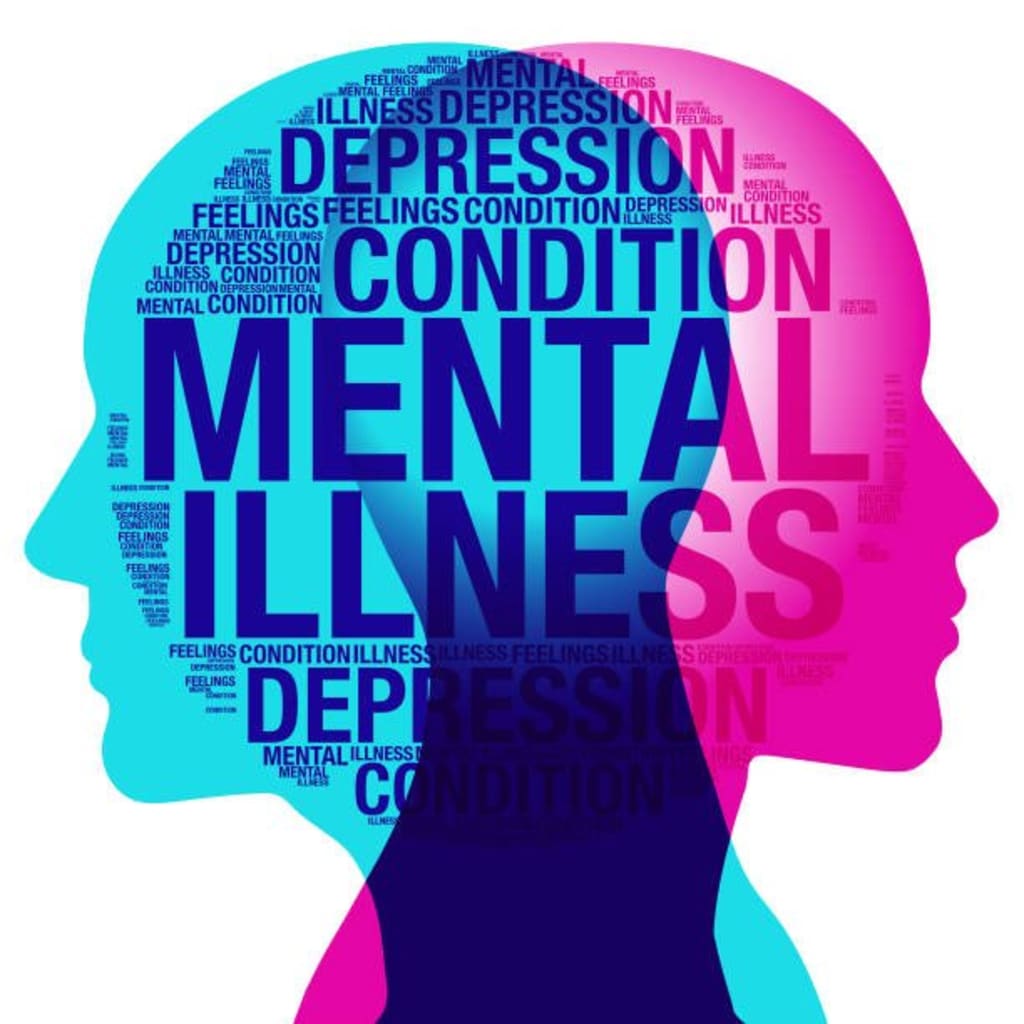Understanding and Managing Mental Health Disorders
Mental Health Disorders

Mental health is an integral part of overall well-being, yet it has often been overlooked or stigmatized in society. Mental health disorders affect millions of people worldwide, impacting their thoughts, emotions, and behaviors. Understanding these disorders is essential for breaking down the barriers to seeking help and providing effective support to those in need. Additionally, it emphasizes the importance of destigmatizing mental health issues and promoting a compassionate and inclusive approach to managing these conditions.
What are Mental Health Disorders?
Mental health disorders, also known as mental illnesses or psychiatric disorders, encompass a wide range of conditions that affect a person's emotional, cognitive, and social functioning. These disorders can cause disturbances in mood, behavior, and perception, leading to significant distress and impairments in daily life.
Mental health disorders are not character flaws or weaknesses; they are legitimate medical conditions that can arise from a combination of genetic, biological, psychological, and environmental factors. They can affect individuals of all ages, genders, and backgrounds.
Common Types of Mental Health Disorders
Anxiety Disorders: Anxiety disorders are characterized by excessive and persistent worry or fear. These disorders include generalized anxiety disorder (GAD), panic disorder, social anxiety disorder, and specific phobias.
Mood Disorders: Mood disorders involve disruptions in mood, leading to emotional extremes. Major depressive disorder and bipolar disorder are examples of mood disorders.
Schizophrenia Spectrum Disorders: These disorders involve abnormal thinking patterns, perceptions, and emotional responses. Schizophrenia is the most well-known disorder in this category.
Eating Disorders: Eating disorders, such as anorexia nervosa, bulimia nervosa, and binge-eating disorder, revolve around unhealthy relationships with food and body image.
Personality Disorders: Personality disorders affect how individuals perceive and relate to the world and others. Examples include borderline personality disorder and narcissistic personality disorder.
Substance Use Disorders: Substance use disorders involve a pattern of compulsive drug or alcohol use despite negative consequences.
The causes of mental health disorders are multifaceted and may vary depending on the specific condition. Some common factors that contribute to the development of mental health disorders include:
Biological Factors: Genetics can play a significant role in predisposing individuals to certain mental health disorders. Imbalances in brain chemistry or structure can also contribute to the development of these conditions.
Environmental Factors: Experiences of trauma, abuse, neglect, or significant life changes can contribute to the development of mental health disorders.
Psychological Factors: Individual temperament, coping mechanisms, and resilience can influence how a person responds to stress and adversity, potentially leading to mental health disorders.
Social and Cultural Factors: Societal expectations, cultural norms, and discrimination can impact mental health and contribute to the stigma surrounding mental illnesses.
Symptoms of mental health disorders can vary widely depending on the specific condition. Some common signs and symptoms include:
Persistent feelings of sadness or hopelessness
Extreme mood swings
Overwhelming anxiety or fear
Changes in sleep patterns or appetite
Withdrawal from social activities
Difficulties in concentration or decision-making
Unexplained physical ailments
Suicidal thoughts or behaviors
Diagnosing mental health disorders involves a comprehensive assessment by a qualified mental health professional. The diagnostic process includes a thorough evaluation of the individual's medical history, symptoms, and daily functioning. Standardized criteria from diagnostic manuals, such as the Diagnostic and Statistical Manual of Mental Disorders (DSM-5), are used to guide the diagnosis.
Effectively managing mental health disorders involves a holistic approach that combines various interventions and support systems. Here are some key components of managing mental health disorders:
Professional Help: Seek support from mental health professionals, such as psychiatrists, psychologists, or therapists. These professionals can provide assessments, counseling, and evidence-based treatments tailored to individual needs.
Medication: For some mental health disorders, medication may be prescribed to alleviate symptoms and stabilize mood. Medication is often used in combination with therapy for optimal outcomes.
Psychotherapy: Also known as talk therapy, psychotherapy involves engaging in structured conversations with a mental health professional. Various therapeutic approaches, such as cognitive-behavioral therapy (CBT), dialectical behavior therapy (DBT), and psychoanalysis, can be beneficial for different conditions.
Supportive Services: Support groups and peer support networks provide valuable connections and understanding for individuals living with mental health disorders.
Lifestyle Changes: Implementing healthy lifestyle habits, such as regular exercise, balanced nutrition, sufficient sleep, and stress management techniques, can support overall well-being.
Self-Care: Engaging in self-care activities that bring joy and relaxation can help manage stress and improve mood.
Avoiding Substance Abuse: Substance use can exacerbate mental health symptoms and interfere with treatment effectiveness. Avoiding alcohol and drug use is crucial for individuals with mental health disorders.
Building a Support System: Surrounding oneself with understanding and compassionate individuals can create a strong support system that aids in recovery.
Understanding and managing mental health disorders is essential for fostering a more compassionate and supportive society. Mental health disorders can affect anyone, regardless of age, gender, or background. Early recognition, appropriate diagnosis, and timely intervention are crucial for effective management and improved outcomes.
About the Creator
Reynol Brennan
A small blogger who shares emotions, life, life insights, and short stories, and provides everyone with happiness, growth, and common sense of life.






Comments
There are no comments for this story
Be the first to respond and start the conversation.